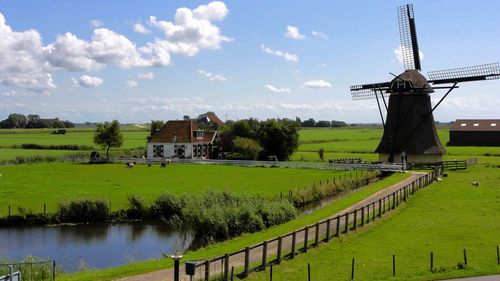Carnival is one of the most significant cultural traditions in Brazil, attracting millions of tourists every year. This festival, which is deeply rooted in Brazilian history, is celebrated each year before Lent. The carnival is a time for people to come together and celebrate, expressing joy, creativity, and passion for life. It’s a unique and colorful experience that you won’t find anywhere else, and this article will explain why it’s one of the most significant cultural traditions in Brazil.
History of the Carnival
Carnival’s roots can be traced back to ancient Greece and Rome, where people would celebrate the coming of spring with dancing, singing, and other forms of entertainment. The modern carnival that we know today, however, originated in Italy during the Renaissance when people would wear masks to hide their identity and social status. The carnival then spread to other European countries and eventually made its way to Brazil.
In Brazil, the carnival was introduced by the Portuguese in the 17th century. However, it was not until the 19th century that the carnival evolved into the extravagant and colorful festival we know today. The carnival has been an essential part of Brazilian culture ever since, and it continues to be a significant event in the country.
Importance of the Carnival
The carnival is significant for many reasons. For one, it brings people from all walks of life together. The festival is celebrated throughout Brazil, and people of all ages and social classes participate in the festivities. The carnival is an opportunity for people to forget their differences and come together to celebrate the joy of life.
Moreover, the carnival is essential because it helps preserve Brazilian culture. The carnival is a celebration of Brazilian music, dance, and art. It’s an opportunity for artists to showcase their talents and for people to learn about and appreciate the different cultural traditions that make up Brazil’s rich heritage.
Furthermore, the carnival is a significant contributor to the Brazilian economy. The festival attracts millions of tourists every year, generating billions of dollars in revenue for the country. It’s a time when hotels, restaurants, and other businesses thrive, providing employment opportunities for thousands of people.
Conclusion
In conclusion, the carnival is one of the most significant cultural traditions in Brazil. It’s a colorful and vibrant festival that celebrates Brazilian music, dance, and art. The carnival brings people together, fosters cultural appreciation, and contributes to the Brazilian economy. If you haven’t experienced the carnival yet, you’re missing out on one of the most spectacular cultural events in the world. So pack your bags, head to Brazil, and join in the festivities!
(Note: Do you have knowledge or insights to share? Unlock new opportunities and expand your reach by joining our authors team. Click Registration to join us and share your expertise with our readers.)
Speech tips:
Please note that any statements involving politics will not be approved.
